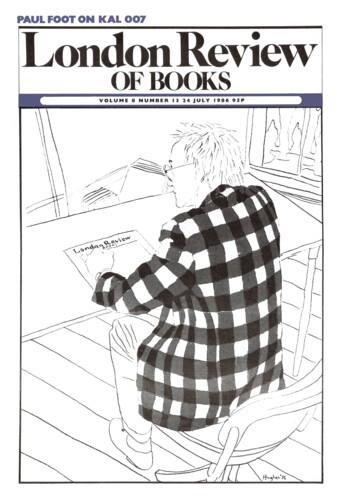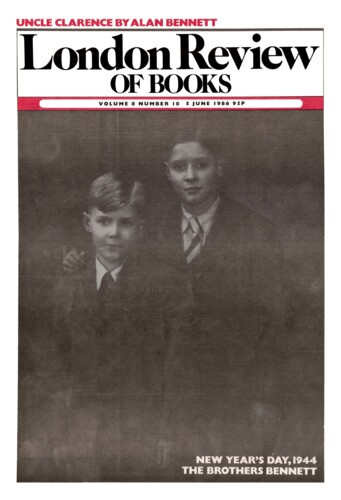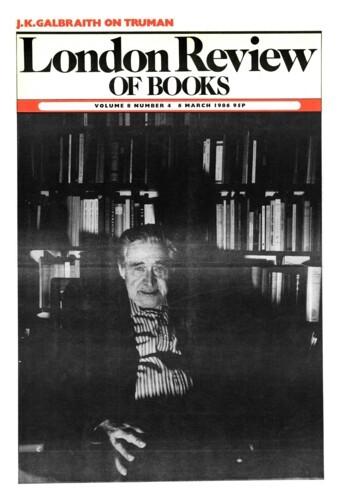Green Martyrs
Patricia Craig, 24 July 1986
Each of these books – two anthologies and a critical study – is notable for its exclusions, among other things; each takes a strong line over questions of definition and evaluation; and each contains much to applaud. Thomas Kinsella’s New Oxford Book goes right back to the beginning, to a rath in front of an oak wood singled out for comment by some anonymous poet of the sixth century, and cherished as a survival from an even more distant past, while the Faber book takes as its starting-point (as the blurb has it) the death of Yeats. The American publisher and critic Dillon Johnston plumps for Joyce, rather than Yeats, in his title: not on a whim, he tells us, but in acknowledgement of certain literary procedures sanctioned by Joyce, and afterwards available to poets, no less than prose-writers. The lofty tone perfected by Yeats didn’t do at all when it came to the bleakness and piecemeal quality of the post-Yeats world, so many poets found. Joyce’s more variable manner showed a way to take in every aspect of the new social conditions, and keep the end-result tricksy.’




